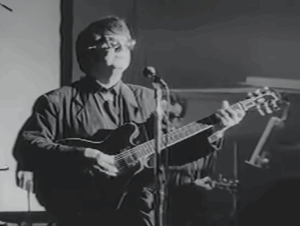Classic Rock Band Members Who Deserve Far More Credit Than They Get

Photo by Jeff Turner from Raleigh, NC, CC BY-SA 2.0, via Wikimedia Commons
Some musicians helped shape classic rock from behind the spotlight. They played key roles, wrote important parts, and influenced entire generations, yet their names rarely appear in mainstream conversations. These artists may not always get the same attention as their bandmates, but their work remains essential to the sound fans still celebrate today.
Below are several classic rock figures whose impact deserves much more recognition.
1. John Paul Jones (Led Zeppelin)
View this post on Instagram
John Paul Jones was more than the quiet member of Led Zeppelin — he was the band’s hidden engine. His work as a bassist, keyboardist, and arranger shaped the group’s style in ways not always obvious at first listen. Songs like “Ramble On” and “The Lemon Song” show how his basslines carried both rhythm and melody, adding layers that helped define the band’s sound.
Jones also contributed heavily to the band’s arrangements, bringing in string sections, synth lines, and unique textures that pushed Led Zeppelin beyond typical rock boundaries. Without his versatility, many of the band’s most iconic moments wouldn’t have sounded the same.
2. Mick Ronson (David Bowie & the Spiders From Mars)
View this post on Instagram
Mick Ronson played a major role in building the sound of David Bowie’s early ’70s work. His guitar style blended power with clarity, giving albums like Ziggy Stardust their sharp, dramatic edge. Ronson’s riffs and solos added structure and emotion, helping Bowie’s ambitious ideas land with impact.
Beyond Bowie, Ronson proved himself as a skilled arranger and producer. He contributed to Lou Reed’s Transformer and supported several artists through carefully crafted guitar parts and orchestral touches. His influence stretched far wider than many listeners realize.
3. Brian Jones (The Rolling Stones)
View this post on Instagram
Before the Rolling Stones became one of the world’s biggest rock bands, Brian Jones was at the center of their sound. He introduced instruments that most rock groups didn’t touch in the 1960s, including sitar, marimba, recorders, and mellotron. These additions helped the band experiment and stand apart from their peers.
Jones also served as a creative spark in the early years, often pushing the group toward new sounds. His willingness to try unusual ideas helped shape the Stones’ identity long before they fully embraced the blues-rock style they became known for.
4. Mitch Mitchell (The Jimi Hendrix Experience)
View this post on Instagram
Mitch Mitchell brought a jazz-influenced approach to the Jimi Hendrix Experience that made the trio feel explosive and unpredictable. His drum parts were fast, loose, and highly expressive, creating space for Hendrix to explore new sounds. Songs on Are You Experienced and Electric Ladyland highlight how well their styles fit together.
While Hendrix often stood at the front, Mitchell’s playing added another layer of excitement. His fills, accents, and improvisation pushed the band far beyond typical rock drumming of the era, and his contributions remain essential to the group’s legacy.
5. Dennis Dunaway, Michael Bruce & Neal Smith (Original Alice Cooper Band)
View this post on Instagram
The original Alice Cooper band was a tightly connected unit long before Alice Cooper the frontman became a solo figure. Dennis Dunaway, Michael Bruce, and Neal Smith crafted the riffs, rhythms, and arrangements that powered early albums. Their writing helped define the theatrical sound fans associate with the classic lineup.
Dunaway’s basslines, Bruce’s guitar work, and Smith’s powerful drumming gave the group its unmistakable style. Many longtime fans continue to credit these musicians for shaping the band’s early success, even if the spotlight often leaned toward the frontman.
6. Steve Hackett (Genesis)
View this post on Instagram
Steve Hackett helped expand Genesis’s sound during their most creative years. His guitar work combined melodic playing with experimental techniques, adding atmosphere and depth to the band’s progressive rock style. Hackett introduced early forms of two-handed tapping in the 1970s, years before the method became widely known in rock music.
His work can be heard across albums like Selling England by the Pound and The Lamb Lies Down on Broadway, where his subtle parts often carried emotional weight. Hackett’s influence continues to shape progressive rock guitarists today, even if his name isn’t always mentioned first.












